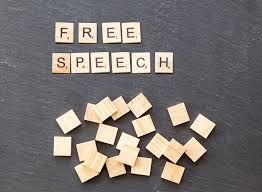The First Amendment and Social Media

I recently settled a case against the City of Walnut Ridge. The issue was whether or not a citizen’s posts on the city’s police department Facebook page could be deleted. Without getting into the details of what happened I want to explain some of the challenges of these cases because I’ve gotten a lot of inquiries.
First, in a lawsuit against local officials, qualified immunity applies. Most cases have found that blocking or deleting comments based on viewpoint violates the First Amendment but one case came to the opposite conclusion. The problem is there aren’t very many cases to look at for guidance. Qualified immunity does not apply in suits against a municipality, but you do have to show that there was an official policy. Showing an “official” policy is harder to do. Each side will argue over who the policymaker was (was it the mayor or city council) and then you probably have to show knowledge of and failure to stop the unconstitutional policy. There may be other ways to show an official policy, for example, a policy posted on the municipality’s social media site that allows viewpoint-based deletions and blocking. Then you have to show that the policymaker approved the policy. If you have information about how you could prove this in a lawsuit it may be worth considering taking legal action.
Second, if someone who was blocked or had their comment deleted wants anything more than nominal damages, they’ll need to prove some actual harm. What are the damages when your comment has been deleted? Another option could be a lawsuit for an injunction which would stop the bad behavior. Qualified immunity does not apply in lawsuits for injunctions, so individual officers can be enjoined or stopped from violating people’s rights. The Trump Twitter case in the Second Circuit and the Randall case in the Fourth Circuit were lawsuits for injunctions.

